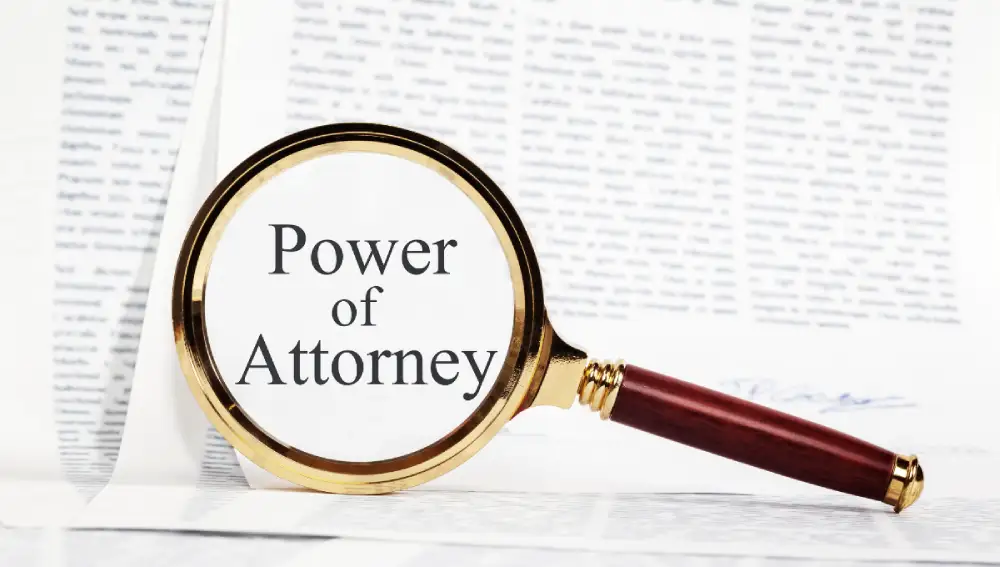Yes, a Power of Attorney (POA) holder can sell property for the principal (the person who grants the POA). But, there are specific conditions and legal requirements that must be met. Selling property is usually complex. This is especially true when it involves a Power of Attorney (POA). You may know that a Power of Attorney is a legal document. It allows one person, the principal, to grant another person, the agent or attorney-in-fact. They have the authority to make decisions and act for them. But real estate transactions are different. You must understand the scope and limits of a POA.
If you are you a property owner considering granting a POA Or if you are an agent entrusted with this big job, you need to know the basics of a smooth and legal transaction.
Factors to Consider for Selling Property with a POA

Scope of Authority
The agent’s authority to sell a property is mainly given based on provisions filtering from the Power of Attorney Document. This is the document including the ability of an agent to sell that property or otherwise by law, shall not be able to.
Where the principal’s POA contains express language authorizing the agent to sell, they are legally qualified to sell real property on behalf of the principal. An effective POA should be drafted stating in clear detail all of the powers expected to be exercised to avoid legal ambiguities or problems at any step in the respective transaction.
Specific vs. General POA
General Power of Attorney:
1. It grants broad authority to the agent to act on behalf of the principal.
2. It covers a wide range of activities, including financial transactions, business operations, and personal affairs.
3. General POA may not include the power to sell property unless explicitly stated.
4. It requires a clear definition of the agent’s powers to ensure they can perform specific actions.
Specific or Limited Power of Attorney:
1. It grants authority to the agent to perform particular tasks or conduct specific transactions.
2. On the term specific POA it precisely outlines the agent’s powers, such as selling a piece of real estate or handling a specific financial transaction.
3. It must explicitly state the authority to sell the property if that is the intended purpose.
4. This ensures the agent will act only within the defined realms of a POA and brings more control and limitation over the agent’s actions.
Fiduciary Duty
A person acting under a power of attorney holds a position of trust. He or she is to avoid self-dealing and not take advantage of his or her position to the detriment of the principal. Secondly, an agent should be transparent and accountable; hence he should have clear and accurate records of all actions on behalf of the principal.
Revocation and Termination
The principal has the discretion to revoke or withdraw the POA at any given time, especially if they discover the agent abuses authority or is guilty of a breach of the fiduciary duty. The POA may also be terminated if the principal becomes incapacitated or dies.
Can a Power of Attorney Holder Sell the Property to Himself?
Normally, a POA holder cannot sell the property to themselves. It involves conflict of interest and breach of duty. The agent should work under the principles of very good faith, care, loyalty, and obedience. They should not put themselves in a position to do self-dealing transactions.
But this is not impossible. For example, the principal has expressly consented to the transfer in the POA agreement. Or the transfer is in the principal’s best interest and with the court’s permission. In such instances, the agent must ensure that the sale is reasonably priced and that the principal’s preference is well protected.
Key Considerations before selling the proper to himself

1) There is an inherent conflict of interest in selling a property to oneself. The situation can cast aspersions on the ability of the agent to act in the best interest of his principal, as enjoined by his Fiduciary Duty.
2) The Power of Attorney document must explicitly grant the power to the agent to sell property to themselves. Where this power is lacking, clearly denoted, the transaction could be void or voidable upon court challenge.
3) The agent owes a duty of full disclosure of all of the terms of the transaction to the principal. This places an affirmative duty upon the agent to provide a fair market value appraisal and to justify the consideration proposed to be accepted in the sale.
4) The property needs to be sold at its fair market value to prevent any self-dealing allegations. An independent appraisal should be obtained so that the worth of the property is clearly established and a fair price is received for the principal.
5) It is in the best interest of every agent to seek legal advice before selling. This will ensure conformance with all legal requirements and may also alert one to potential problems or conflicts of interest which may arise during the course of the transaction.
6) In case the principal is competent, his express approval regarding the transaction is mandatory. Such consent must be recorded as a safeguard for both parties and to avoid any ambiguity concerning proof of the principal’s consent.
7) There may be instances where judicial oversight is required to sanction the transaction. This may go a long way in protecting the rights of the principal and ensuring that it is properly carried out in a fair and lawful manner.
8) The agent is responsible for compliance with local laws and regulations governing the sale of property under a Power of Attorney, with due regard to proper documentation, notarization, and registration of the sale deed.
By taking into account the above-mentioned fundamentals, the agent will be able to negotiate all issues on sale of property to oneself while maintaining their fiduciary duties and avoiding probable legal complications.
Conclusion
In conclusion, a POA holder possesses certain powers or authority, like selling the principal’s property, which he must utilize appropriately and in the interest of the principal.
If one has questions or concerns about the agent’s authority or actions, the best course of action is to seek legal advice.
FAQs
A Power of Attorney (POA) grants an agent the legal authority to act on behalf of the principal in property matters. The specific rights and powers conferred can vary depending on the type and scope of the POA document.
If the Power of Attorney (POA) document does not mention the authority to sell property, the agent does not have the legal right to sell it. The agent’s powers are limited to what is specifically stated in the POA. For any property sale to be valid, the POA must clearly grant this authority.
In order to allow your agent to sell your property, you should recommend that in your POA document you state that it gives your agent authority to sell your property. This detail should be provided in the clause to ensure that there is a clear indication that the agent is allowed to sell the property; with some restrictions if any.

